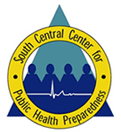
How to Manage Conflict so it Doesn't Manage You
Course Description:
This course presents essential strategies to improve effectiveness when dealing with interpersonal and group conflicts that you may experience with co-workers, bosses, and employees in the workplace. You will learn how to develop a conflict manager's mindset, how to depersonalize conflict, how to deal with people's emotions, and how to use a proven 4-step process for resolving most types of disputes. Next, because organizations can't function to their maximum potential if people view their work units, areas, departments, divisions, or programs as autonomous "silos," we will address ways to avoid and deal with territorialism and turf battles. Whatever your role and responsibilities, you'll find that applying these anti-turf strategies will help you build solid, collaborative relationships with the groups and individuals that you should be dealing with on a more regular basis.
Target Audience
Academic Faculty/Staff, Federal Government Employees, State Government Employees, Local Government Employees, Non-Government Employees and Students
Learning Objectives
- Identify the benefits of adopting a “conflict manager’s mindset”
- Identify the five predominant styles of conflict management and the situations when each is most appropriate
- Apply strategies to neutralize your own emotions as well as those of others
- Utilize the four-step conflict resolution process to achieve better outcomes to most simple conflicts
- Deal more effectively with complex or difficult conflicts through the use of seven “turnaround strategies”
- Understand the effects of turf battles on the functioning of state health departments
- Apply structural and interpersonal strategies to identify and resolve turf problems within the department
- Describe the three types of integrated effort that are more likely to be achieved when turf issues have been resolved
Instructor:

Ellen Belzer, MPA
Ellen Belzer, MPA, is president of Belzer Seminars and Consulting, LLC, a Kansas City-based company that specializes in negotiation, management, and communication programs and services for health care professionals. She is also Managing Editor of The Healthcare Collaborator, an online newsletter on communication strategies for health care professionals.
Belzer’s seminars on negotiation, conflict management, communication and related topics have been conducted for thousands of physicians, nurses, administrators, and other health professionals throughout the United States. She also serves as a professional mediator to hospitals, managed care organization, community/migrant health centers, state health departments, rehabilitation facilities, and a variety of health-related associations nationwide. She has served on the faculty of the MCH Leadership Skills Training Institute since its inception. Ellen has also served as a consultant, trainer and mediator to various state Title V programs.
Belzer received her BA degree from Northwestern University in Evanston, Illinois, her MPA degree from the University of Missouri at Kansas City, and has received additional training in negotiation through intensive university-based program. Prior to starting her consulting and seminar practice in 1986, she as an executive with a national medical specialty association for 12 years where she received a broad background in medical socioeconomics.
Available Credit
- 3.00 Participation/CETulane Professional and Continuing Education (PaCE) awards 3.00 hour(s) of credit for completing How to Manage Conflict so it Doesn't Manage You
Price
Required Hardware/software
System Settings
This course is designed to work most effectively if your computer and internet connection meet certain minimal requirements. This course can be accessed using a Windows 10 PC or a Mac with High Sierra1, Mojave, or Catalina. Pop-up blockers should be disabled when viewing the course. Internet Explorer 11 (for Windows 10), or the current version of Google Chrome, Mozilla Firefox, or Apple Safari (for Windows 10 and or Mac) is required. Many of our courses require Java and JavaScript enabled.
Links to External Websites
Links to websites outside this course will open in a new window or tab. Some browsers may minimize the course window. If this occurs, maximize the course window to return to the course.
Adobe Acrobat Reader (for desktops and laptops)
Adobe Acrobat Reader is required to access some documents in this course. If you need to download a free copy of Acrobat Reader, click here.
Internet Connection Speed
A minimum download speed of 1.5 Mbps is recommended for an optimal experience, which is commonly the speed associated with a basic DSL or a cellular/satellite connection. A faster connection, such as cable or fiber service, with further enhance your online experience. A Wi-Fi connection is generally acceptable, but it is dependent upon one of the two services mentioned above. You can check your internet connection speed at http://www.speedtest.net/.

 Facebook
Facebook Twitter
Twitter LinkedIn
LinkedIn Forward
Forward